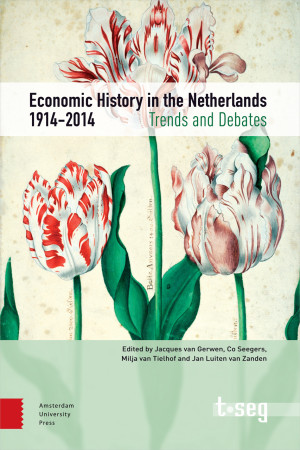In the field of economic history, the Netherlands Economic History Archives (NEHA) have central position. Twelve renowned Dutch scholars presents an overview of the development and state-of-the-art of the discipline of economic history in the past century.
Celebrating the centennial of the Netherlands Economic History Archives (Nederlands Economisch-Historisch Archief, or NEHA), the oldest and most distinguished organization in the field of economic history, this volume with twelve contributions by renowned Dutch scholars presents an overview of the development of the discipline of economic history in the past century. Three distinct historiographical stages characterize the past hundred years of economic history research in the Netherlands. During the pre-1940 period, economic historians were strongly influenced by German scholarship, by Karl Marx and Werner Sombart and other scholars from the German Historical School. This changed after 1945, and gave way to a period in which French examples - in particular Fernand Braudel and the Annales School - were predominant. In the 1970s the international orientation changed again, and since then the Anglo-Saxon world, and in particular the New Economic History has supplied the most influential scholarship affecting debates and approaches in Dutch economic history. Since the 1990s Dutch economic historians fully participate in the growing internationalization of the field and play an important role in the discipline internationally.

